Share
Working at ESO
Are you interested in working in areas of frontline technology and in a stimulating international environment? Do you feel your profile matches our requirements? Learn more about our current vacancies and apply online. Read more..
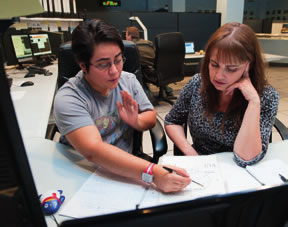
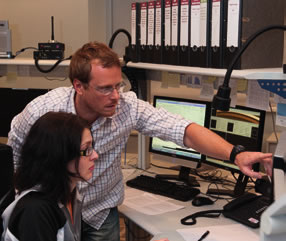

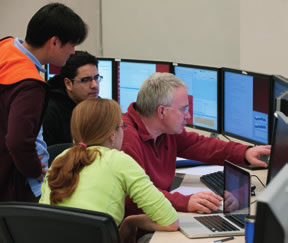
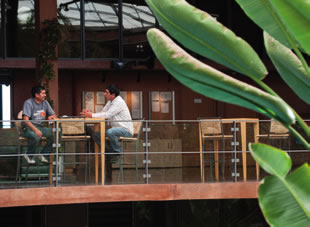

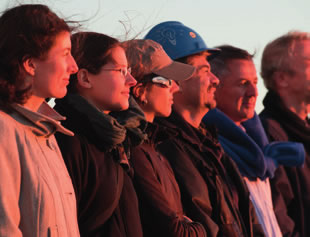

The European Organisation for Astronomical Research in the Southern Hemisphere (ESO) is the foremost intergovernmental astronomy organisation in Europe and the world's most productive ground-based astronomical observatory. ESO carries out an ambitious programme focused on the design, construction and operation of powerful ground-based observing facilities enabling astronomers to make important scientific discoveries.
ESO operates three unique world-class observing sites in northern Chile: La Silla, Paranal and Chajnantor (home to ALMA and APEX), and the ESO Headquarters are located in Garching, near Munich, Germany.
At Paranal, ESO operates the Very Large Telescope, the world's most advanced visible-light astronomical observatory, and will host and operate the southern array of the Cherenkov Telescope Array, the world's largest and most sensitive high energy gamma-ray observatory. ESO is a major partner in ALMA, the largest astronomical project in existence. And on Cerro Armazones, ESO is building the 39-metre Extremely Large Telescope (ELT), which will become 'the world's biggest eye on the sky' and whose operations will be fully integrated into the Paranal Observatory.
For its Office for Science within the Directorate for Science at its headquarters in Garching, Germany, ESO is offering the position of
Postdoctoral Fellow - Time-domain science with WST
Garching
Deadline 20/06/2025
ESO astronomers are participating in the design of a new facility, the Wide-field Spectroscopic Telescope (WST: https://www.wstelescope.com/, https://arxiv.org/abs/2403.05398), an innovative 12-m class wide-field spectroscopic telescope with simultaneous operation of a large field-of-view (3 sq. degree) and high multiplex (30,000) multi-object spectrograph facility with both medium and high resolution modes (MOS), and a giant panoramic (3x3 sq. arcmin) integral field spectrograph (IFS). The WST project is a research and innovation action funded by the EU's Horizon Europe programme (under agreement number 101183153 (WST)).
Under this agreement, ESO is offering a postdoctoral researcher the opportunity to work on time-domain science with WST. Time-domain astronomy is a key component of WST's science drivers, and thus, it is being built into WST from the start. This includes the generation and ingestion of a spectroscopic alert stream, which aims to report on spectral changes, like variations in emission or absorption lines or changes in the continuum, among others. The development of this alert stream will be conducted in the context of the WST time-domain working group (led by Richard Anderson - EPFL, Cyrielle Opitom - University of Edinburgh, and Paula Sanchez Saez - ESO), whose aim is to maximize the information offered by WST time-resolved observations, enabling breakthrough science across all scales, from Solar System Objects to Cosmology, and offering a major opportunity for serendipitous discoveries. In this context, the postdoctoral fellow will work for one year on the definition and characterization of the WST spectroscopic alert stream.
Main Duties and Responsibilities:
- Work in close collaboration with members of the WST Time-Domain group on the definition of the WST alert stream.
- Interact with other members of the WST Time-Domain group to collect requirements for the alert stream.
- Collect available optical spectra for classes of targets for which the alert stream is relevant.
- Use the WST ETC to simulate optical spectra for testing.
- Estimate expected alert rates.
- Provide inputs to the operational model team.
- Develop and test algorithms for the identification of spectral changes.
Key competencies and requirements
Essential Competences and Experience:
- Experience with optical spectral analysis
- Good working knowledge of Python.
- Experience with statistical analysis in astronomy
Desirable Competences and Experience:
- Strong background in time-domain astronomy
- Experience with large spectroscopic surveys.
- Experience with multi-object spectroscopy (MOS) or integral field spectrograph (IFS) observations
- Background in machine learning applied to astronomy
- Experience with photometric alert streams (e.g., ZTF or LSST)
Qualifications:
Applicants must have a PhD in astronomy, physics or a related discipline by 1 October 2025.
Language Skills:
The position requires an excellent command of English, both written and spoken.
Remuneration and Contract:
We offer an attractive remuneration package including a competitive salary and allowances, comprehensive social benefits, and we provide financial support for relocating families. Salary will be in line with ESO Fellow salaries. The position includes the benefits as outlined under https://www.eso.org/public/jobs/conditions/fellows/ however, the duration of the contract is limited to one year. The starting date is flexible, but should not be later than December 2025.
Duty Station:
Garching near Munich, Germany
Application:
If you are interested in working in areas of frontline science and technology and in a stimulating international environment, please visit http://www.eso.org for further details.
Applicants are invited to apply online at: https://recruitment.eso.org. Applications must be completed in English and should include the following material:
- A Cover Letter of up to one page outlining relevant experience and motivation for the role;
- A research statement of up to two pages;
- A CV including personal data, education, skills, expertise, and publication list;
- The position also requires two letters of reference to be submitted. Referees will be automatically invited to submit a recommendation letter by the application deadline. Applicants are strongly advised to trigger these invitations (using the web application form) well in advance of the application deadline.
Deadline for applications is 20 June 2025
Interviews are expected to be held in July 2025, online via MS Teams.
An important element in any successful employment relationship is harmony in values between an organisation and its people.
The ESO Values are:
ESO strives for excellence through innovation.
ESO provides outstanding services to its communities.
ESO fosters diversity & inclusion.
ESO believes in the key role of sustainability for its future.
Achieving the above are recognized as only possible on the basis of personal values and attitudes that we expect from our employees: respect, integrity, accountability, commitment, collaboration, and clear & open communication. Applicants to any ESO role are asked to reflect on their affinity with these values and advised they may be asked about them if called for interview.
Diversity
ESO has established diversity as an important value of the Organisation, is committed to providing an equal opportunities environment and is actively seeking to promote a diverse, equitable and inclusive workforce. Please visit https://www.eso.org/public/about-eso/sustainability/dei-at-eso/ for further details.
Nationality
No nationality is in principle excluded from employment at ESO, however, recruitment preference will be given to nationals of our Member States, host states and strategic partners: Australia, Austria, Belgium, the Czech Republic, Denmark, Finland, France, Germany, Ireland, Italy, the Netherlands, Poland, Portugal, Spain, Sweden, Switzerland, the United Kingdom and Chile, irrespective of gender, age, disability, sexual orientation, ethnicity or religion.
